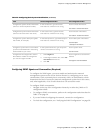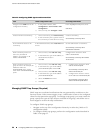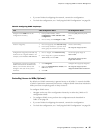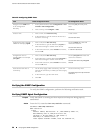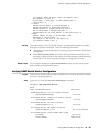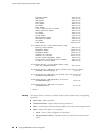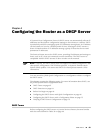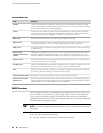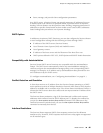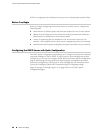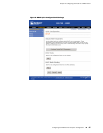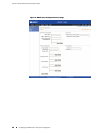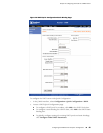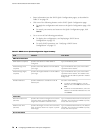
Chapter 4
Configuring the Router as a DHCP Server
A Dynamic Host Configuration Protocol (DHCP) server can automatically allocate IP
addresses and also deliver configuration settings to client hosts on a subnet. DHCP
is particularly useful for managing a pool of IP addresses among hosts. An IP address
can be leased to a host for a limited period of time, allowing the DHCP server to
share a limited number of IP addresses among a group of hosts that do not need
permanent IP addresses.
The Services Router acts as the DHCP server, providing IP addresses and settings to
hosts, such as PCs, that are connected to router interfaces. The DHCP server is
compatible with the DHCP servers of other vendors on the network.
NOTE: Currently, the DHCP server does not support IPv6 address assignment, user
class-specific configuration, DHCP failover protocol, or dynamic Domain Name
System (DNS) updates. You cannot use DHCP for virtual private network (VPN)
connections.
You can use either J-Web Quick Configuration or a configuration editor to configure
the DHCP server.
This chapter contains the following topics. For more information about DHCP, see
the JUNOS System Basics Configuration Guide.
■ DHCP Terms on page 63
■ DHCP Overview on page 64
■ Before You Begin on page 66
■ Configuring the DHCP Server with Quick Configuration on page 66
■ Configuring the DHCP Server with a Configuration Editor on page 72
■ Verifying a DHCP Server Configuration on page 75
DHCP Terms
Before configuring the DHCP server on J-series Services Routers, become familiar
with the terms defined in Table 36 on page 64.
DHCP Terms ■ 63



